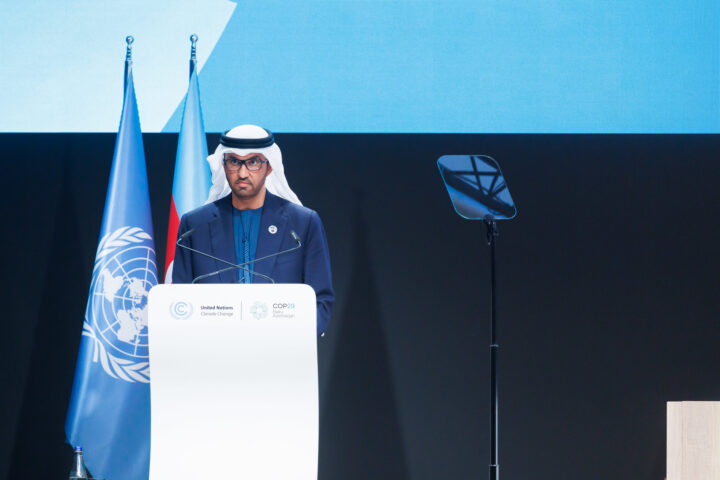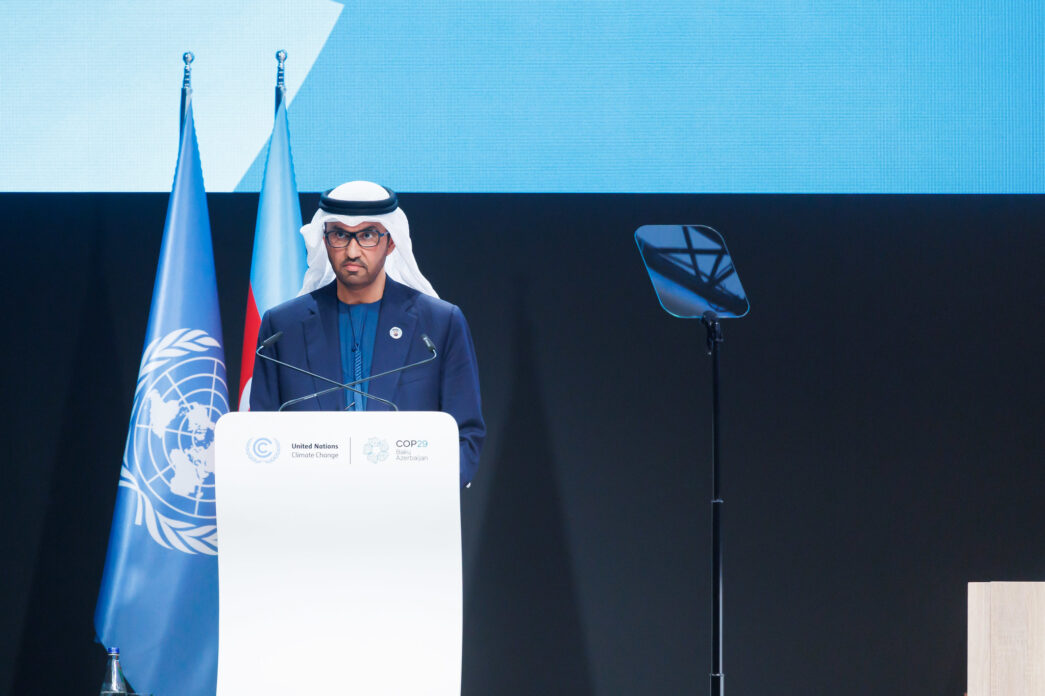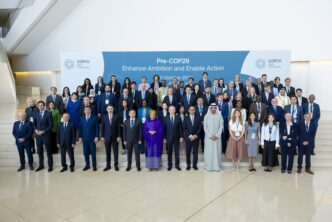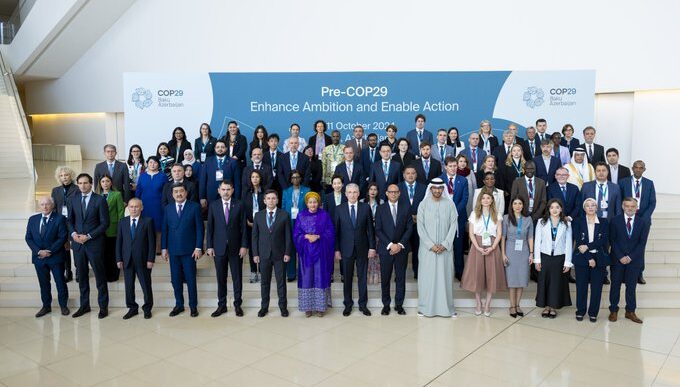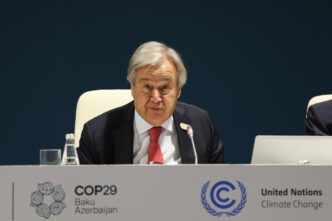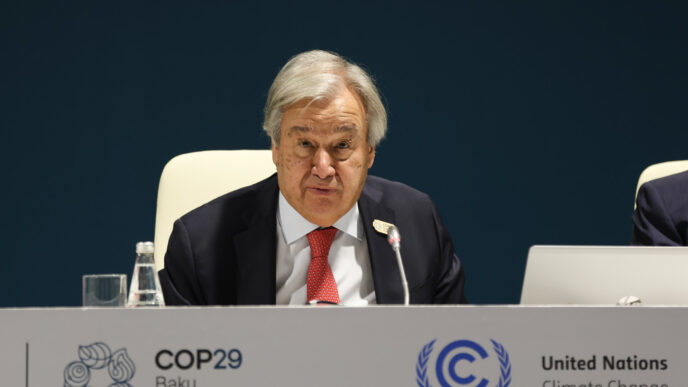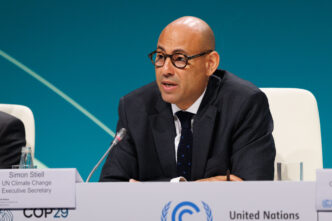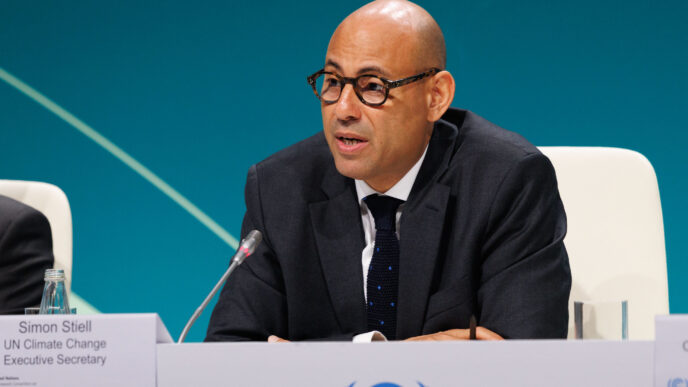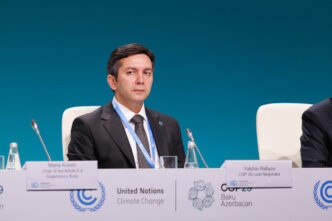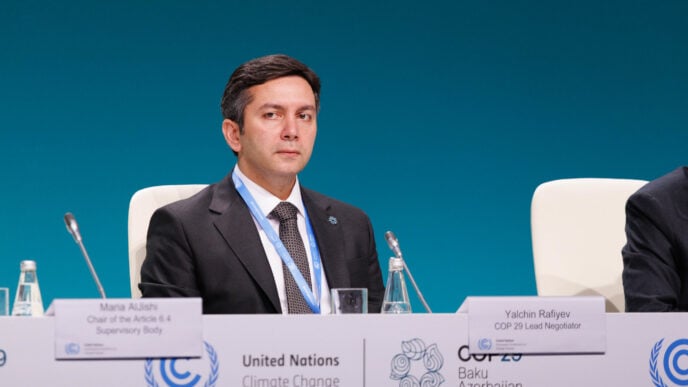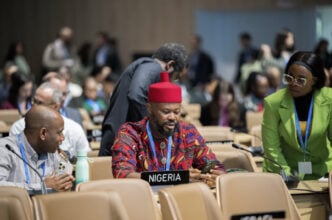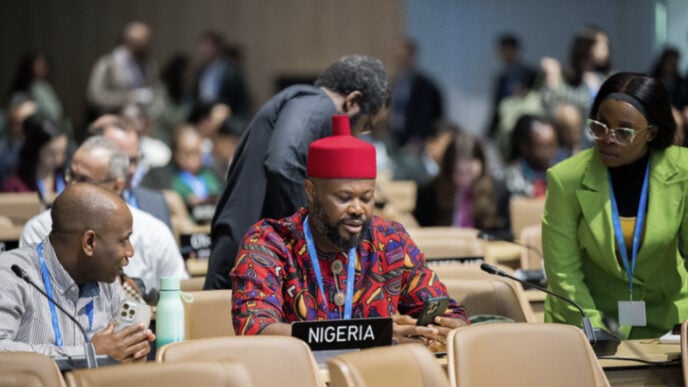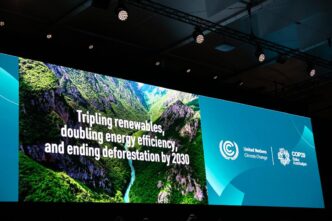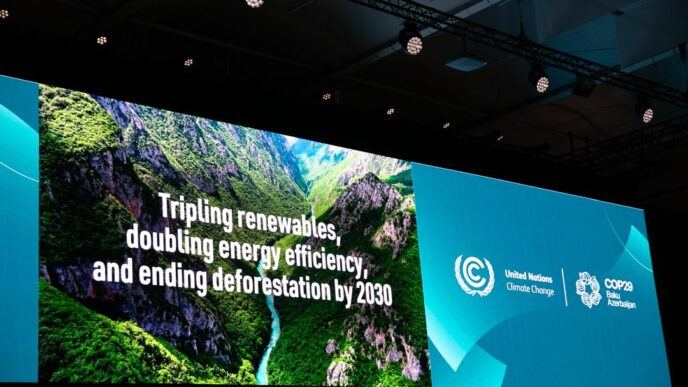Sultan Al Jaber, COP28 president
The United Arab Emirates has pledged to cut emissions by 47 percent by 2035 in its new nationally determined contributions (NDCs).
NDCs aim to encourage countries to adopt new emissions-reduction targets of achieving net-zero goal by 2050, and preventing global temperatures from rising beyond 1.5C.
The Paris Agreement requires nations to put forward new and stronger NDCs every five years, with the next submission due by February 2025.
The UAE, which hosted last year’s COP28 in Dubai, is the first country to submit its updated climate action plans ahead of the ongoing COP29 in Baku, Azerbaijan.
In its third NDCs, the country stated that it aims to reduce its emissions by 47 percent by 2035, compared to the earlier commitment of 40 percent by 2030.
The UAE said it “recognises the urgency of the climate crisis” and its new NDC is “paving the way to ensure 1.5C remains within reach”.
The oil-producing country added that its 2035 emission reduction target “balances ambition with fairness, ensuring that its contributions are significant but achievable given its national circumstances”.
The UAE said it plans to reduce emissions through measures that include civil nuclear energy, significant increase in solar capacity, waste-to-energy technologies, as well as producing oil and gas in a less polluting way.
At COP28, countries reached an historic agreement to transition away from fossil fuels, triple renewable energy capacity and double energy efficiency.
The UAE climate plans have, however, come under criticism for failing to include any measures to restrain the production of oil and gas.
Advertisement
Andreas Sieber, associate director of policy and campaigns at climate advocacy group 350.org, described the UAE’s target as “a greenwashing exercise”.
“Emissions reduction claims lack credibility without robust safeguards against inflated accounting and offsets, but even more troubling is the glaring omission of exported emissions – 63 percent of the UAE’s oil is exported,” Sieber added.
Mohamed Kamal, director of Greenish Foundation, said the plan does not include any commitment to phase out fossil fuels.
“With a rather limited target of 30% of clean energy for 2030 including nuclear (and no target for 2035), it is unclear how the domestic objective of reducing energy emissions by 50% by 2035 will be reached,” Kamal said.
“Promises of achieving negative emissions through mangrove afforestation and false solutions, like carbon capture, cannot compensate for the lack of ambition to achieve deep, rapid and sustained emissions reductions in the energy sector and beyond.”
Advertisement
Add a comment
